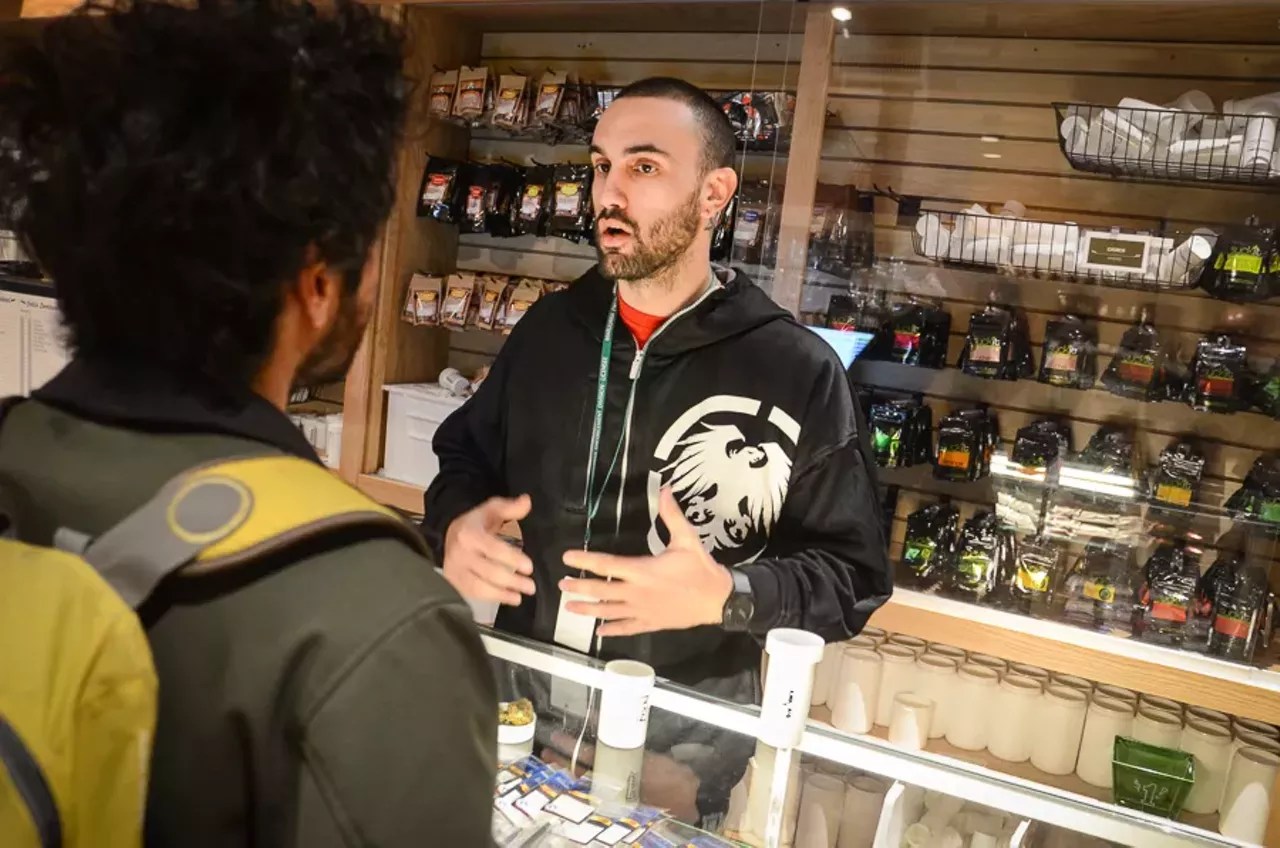
Ken Hamblin III

Audio By Carbonatix
A bill proposing that Colorado double its recreational marijuana sales limit has passed its first hurdle, but not without a few changes to the language.
Colorado’s marijuana possession limit for adults 21 and over has been two ounces for almost four years now, but the state’s daily limit for recreational purchases is one ounce of flower, or eight grams of concentrate, or edibles with no more than 800 milligrams of THC. House Bill 25-1209 attempts to align the sales and possession limits and also streamline or loosen several other business rules, including record-keeping, research and development, worker registration and video surveillance.
The bill was approved 9-4 by the state House Finance Committee on March 4, and will go in front of the full House next. However, part of the bill that would have allowed free promotional marijuana items – an exciting prospect for dispensary shoppers – was removed during the amendment process because some lawmakers, including committee members, were concerned about free samples at stores.
“I think that discussion needs to happen on its own bill with a lot more time and energy, so we are taking that section out,” State Representative William Lindstedt, the bill’s prime sponsor, said during the hearing.
Other amendments added to the bill were technical requests by the state Marijuana Enforcement Division, which oversees Colorado’s pot industry. One revision would move back the bill’s implementation date from this summer to January of next year.
If HB 1209 passes, the purchasing equivalency for edibles and concentrates would double. Video surveillance of production facilities and certain requirements for non-owning workers would be curtailed, too. There are currently fourteen different areas in which video cameras must be present at marijuana businesses; this bill would reduce that to points of sale, exterior points of ingress and egress, delivery vehicles and areas where marijuana is shipped.
Employees who don’t have ownership stakes would no longer have to pay registration fees every two years or provide fingerprints when registering as marijuana workers, although they would still have to undergo background checks. Badges worn on the job would no longer be necessary, either, and would be replaced by digital ID cards on smart phones.
As Colorado’s once-groundbreaking marijuana space spirals from declining dispensary sales and dropping wholesale prices, Lindstedt believes the “industry needs a change in direction.”
“It’s in a spiral because we overregulated this industry,” he told his fellow legislators. “This bill is about regulations. It isn’t about diversion, it isn’t about keeping cannabis from kids…the best way to prevent youth access is a well-regulated marketplace that people want to use because it works.”
The hearing lasted nearly two hours, with lengthy testimony for and against (although that was nothing compared to the five-plus hours later spent discussing tipped wages for restaurant and bar workers). The majority of opposition came from parents and groups that oppose commercial marijuana in order to guard children, with some parents and their children speaking about teenage addictions and troubles with extracted THC and potent dispensary products.
Proponents of the bill have pointed to state data showing a drop in youth marijuana use from 2021 to 2023, as well as an overall decline since recreational pot sales began in Colorado. With that and the two-ounce possession limit in mind, state rep and committee member Rebekah Stewart said it’s time to loosen the grip on marijuana businesses.
After touring marijuana production facilities and speaking to dispensary workers in her district in Lakewood, Stewart said, she was “blown away” by the sophisticated industry regulations and “all of the hoops we ask our industry partners to jump through to be able to sell cannabis in this state.”
Stewart said she believed the experiences shared by parents who opposed the bill and felt their pain, but noted that “we have data that is telling us a different story” on a broader level.
“This bill is not asking to increase the possession limit. It is [already] two ounces. We’re talking about aligning the purchase limit with what is already allowed to be held by a consumer,” she said. “This is an important bill.”